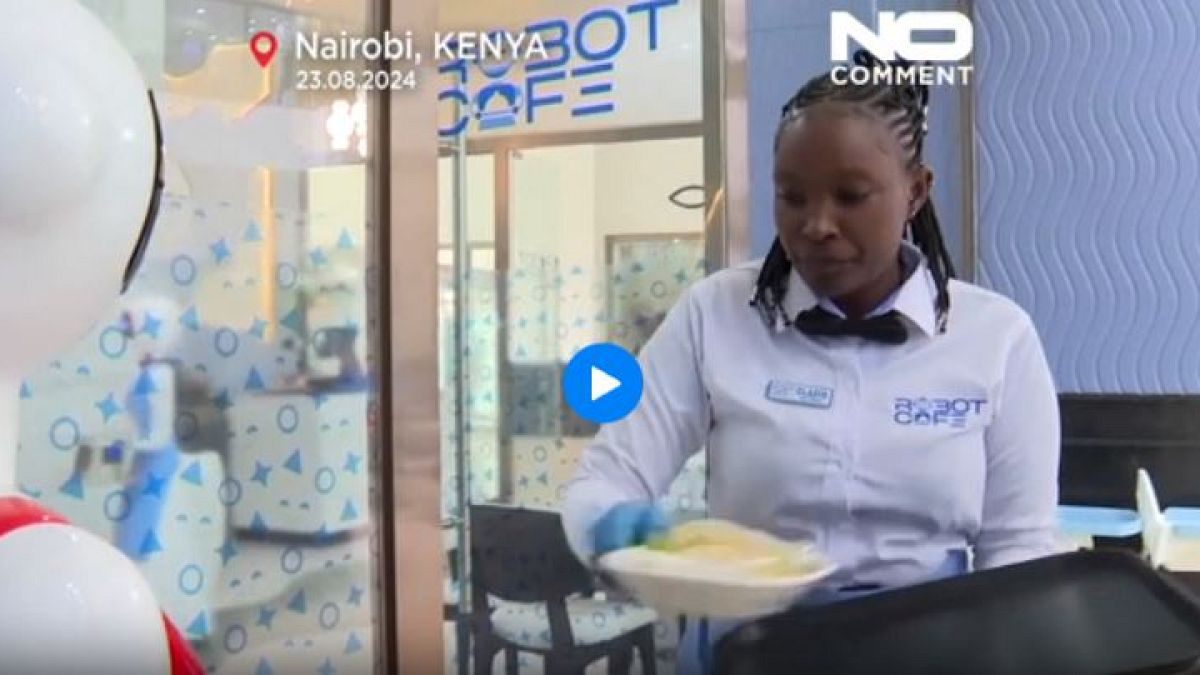The Robot Cafe in a swanky Nairobi suburb is making headlines as the first of its kind in East Africa. The innovative dining experience features robots assisting the human staff, creating a unique and futuristic atmosphere that is attracting large crowds of curious customers. This new approach to dining involves customers accessing the menu by scanning a QR code at their table and placing their orders online. Once the food is prepared, a bell alerts a human waiter who places the dishes on a robot’s tray. The robots then deliver the food to the designated table after receiving commands on an iPad. This innovative system is controlled via a central command centre that uses specialized software to coordinate the robots’ tasks.
The introduction of robots in the hospitality industry has generated significant buzz around the Robot Cafe. Customers are excited about the futuristic dining experience and the efficiency that comes with the robotic waitstaff. However, the introduction of robots has also sparked concerns about potential job displacement in Kenya’s hospitality sector. As robots take on more tasks traditionally performed by human workers, there is a fear that job opportunities for staff members could be impacted. The restaurant’s management will need to find a balance between embracing technology to enhance customer experience and ensuring job security for their human employees.
Despite the concerns about job displacement, the Robot Cafe has been receiving positive feedback from customers who are eager to experience this cutting-edge dining concept. The use of robots to assist with food delivery and table service has proven to be efficient and effective, enhancing the overall dining experience for patrons. The robots are equipped with sensors and cameras to navigate the restaurant floor and serve dishes to customers with precision and accuracy. This technological innovation has set the Robot Cafe apart from traditional dining establishments in Nairobi and has garnered significant attention from both local and international patrons.
The success of the Robot Cafe in Nairobi highlights the growing trend of automation and artificial intelligence in the hospitality industry. As technology continues to advance, more restaurants and food service establishments are exploring the use of robots to streamline operations and enhance customer service. While robots can improve efficiency and accuracy in food delivery and table service, there are also concerns about the impact on human workers and job opportunities in the industry. It will be important for restaurant owners and managers to carefully consider the implications of incorporating robots into their operations and to ensure that they are implementing strategies to support their human staff members.
In conclusion, the Robot Cafe in Nairobi is a pioneering restaurant that is pushing boundaries and redefining the dining experience in East Africa. The use of robots to assist with food delivery and table service has created a unique and futuristic atmosphere that has captured the attention of patrons from near and far. While the introduction of robots has raised concerns about job displacement in the hospitality industry, the restaurant’s management must find a balance between embracing technology and supporting their human employees. As automation and artificial intelligence continue to play a larger role in the hospitality sector, restaurants like the Robot Cafe are setting a new standard for innovation and customer service.











